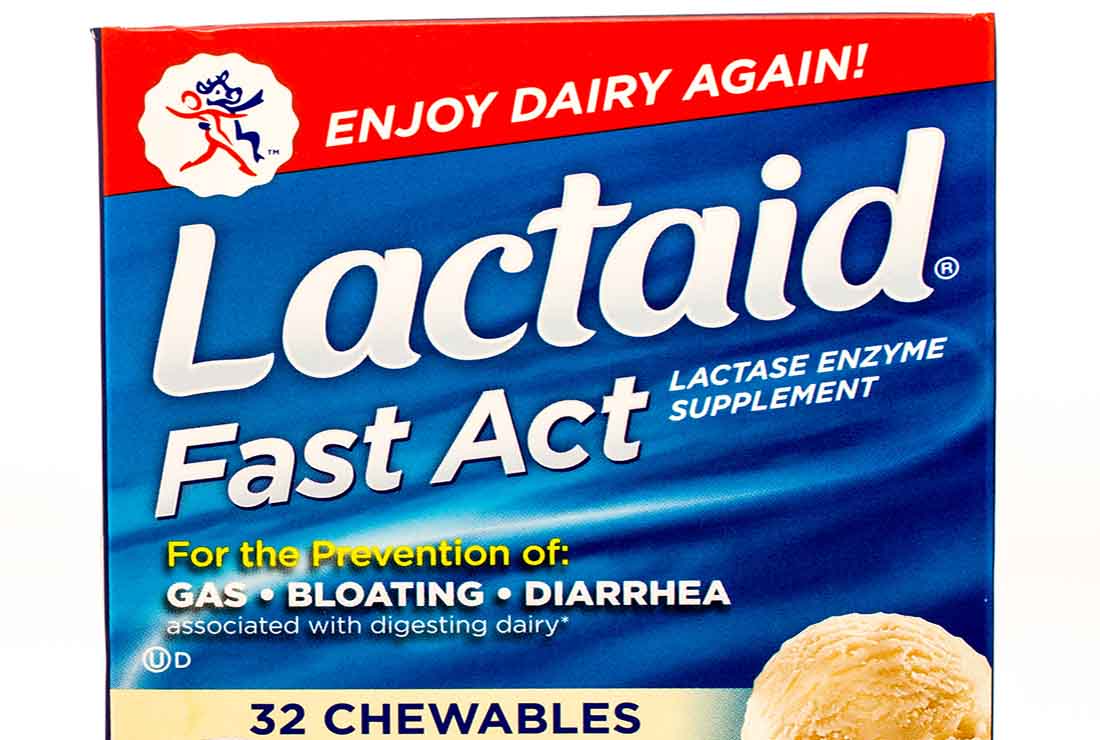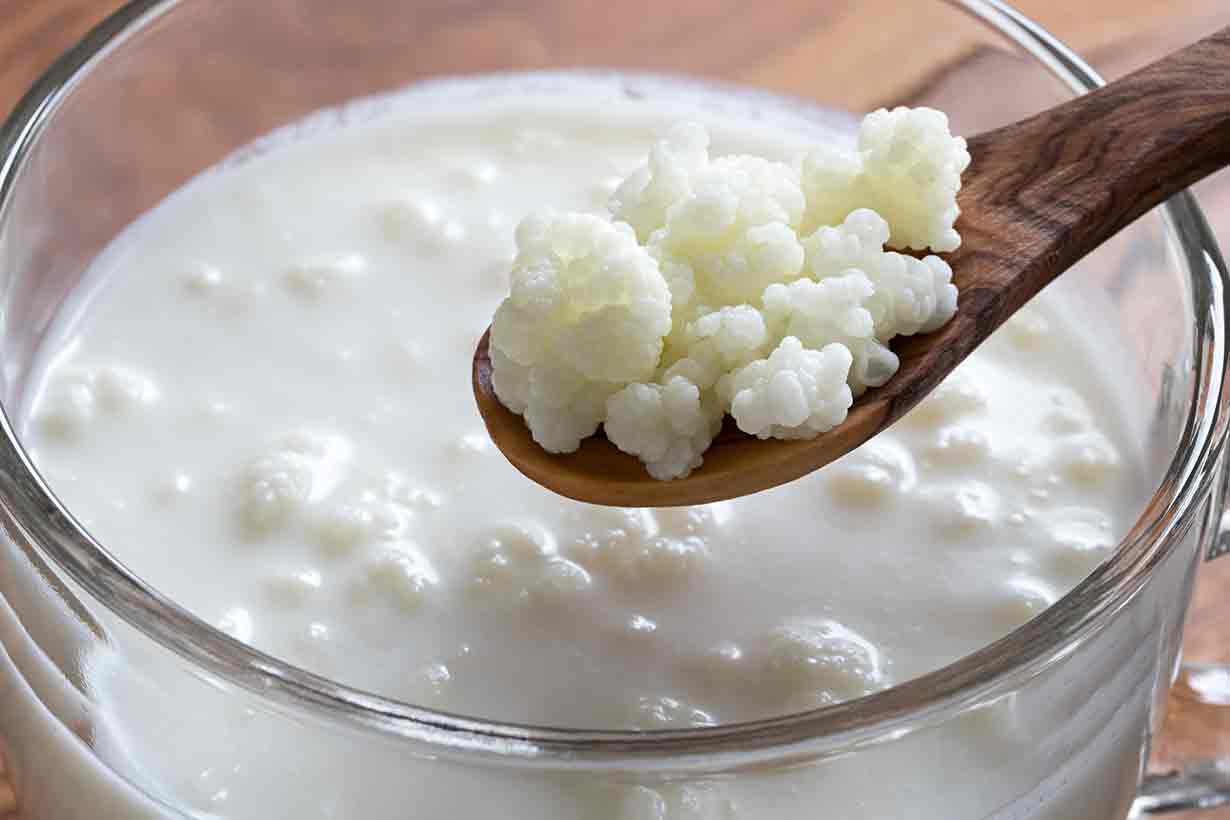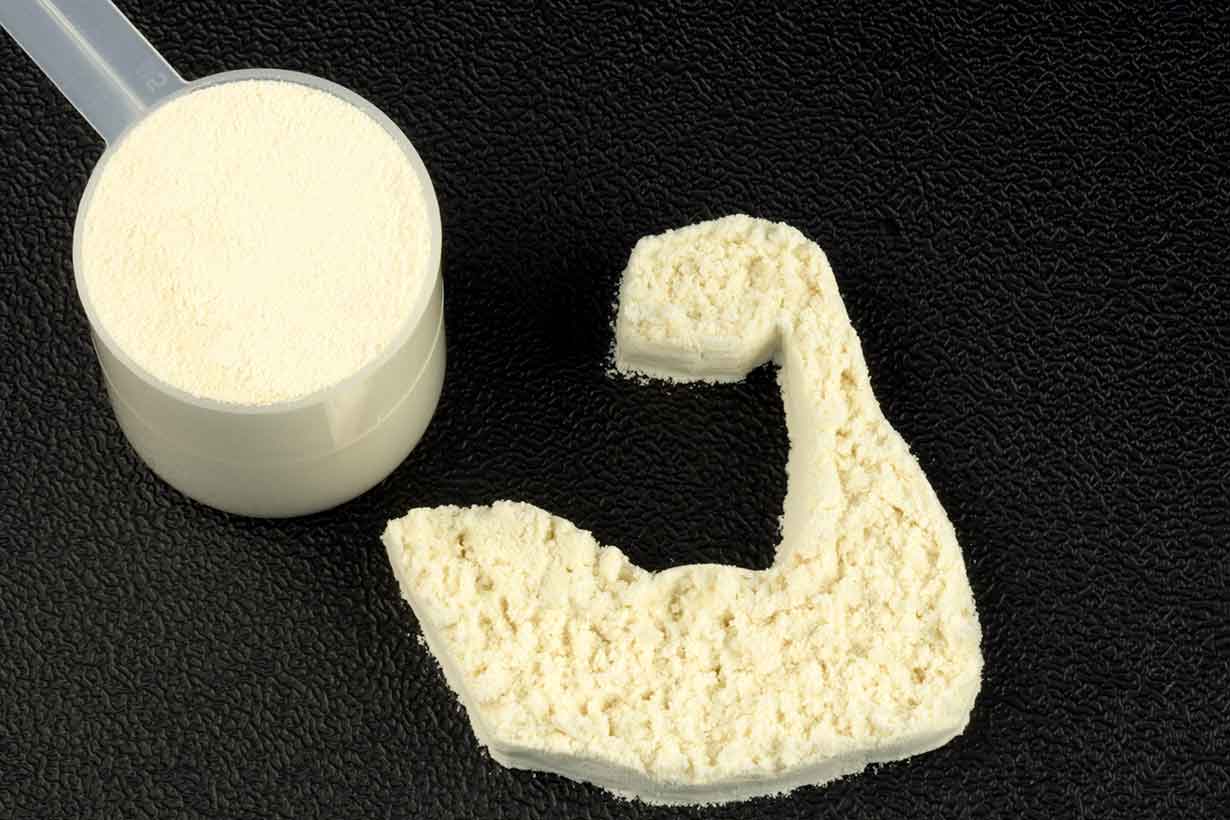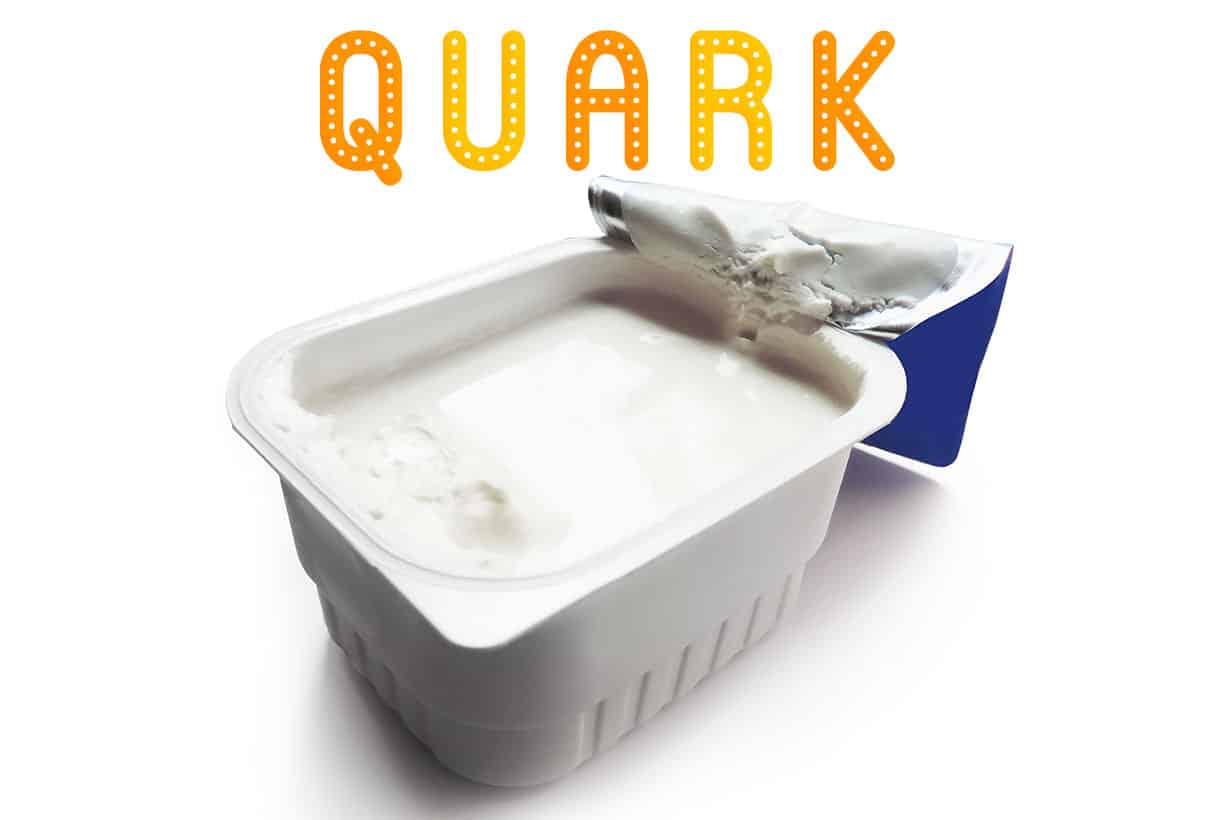Disclosure: This post may contain affiliate links. This means if you click on one of these links and purchase an item, we will receive a small commission at no extra cost to you. All opinions are our own.
It might come as a surprise, but more than 65% of the world’s population experiences a diminished ability to digest lactose after early childhood (1).
While lactose intolerance is most prevalent in East Asia, it can affect individuals worldwide beyond infancy (2).
Despite this widespread prevalence of lactose intolerance, many people continue to indulge in dairy foods for their taste or cultural significance, resulting in a high demand for a solution.
This article examines a potential remedy for lactose intolerance known as Lactaid pills.
Firstly, we’ll explore what lactose intolerance entails. Following this, we’ll proceed with a review of Lactaid pills, assessing their efficacy and potential drawbacks.
Table of contents
What is Lactose Intolerance?

Lactose is the primary sugar in milk and dairy products, sometimes referred to as “milk sugar.”
As mentioned earlier, numerous individuals experience a diminished ability to digest lactose efficiently following infancy. This shift is tied to an enzyme named lactase—more specifically, its decline.
In this context, the reduced digestibility of lactase attributed to a natural decline in lactase production, commencing around the age of approximately five years old (3).
Situated in the small intestine, lactase is an enzyme tasked with the role of digesting lactose in milk and other dairy products (4).
Symptoms of Lactose Intolerance
Some of the most common symptoms of lactose intolerance include (5, 6):
- Bloated stomach
- Stomach pain/cramps
- Diarrhea
- Joint pain
- Gas
- Acne
- Chronic fatigue/lethargy
In general, these symptoms manifest somewhere between 30 minutes to 2 hours after consuming a source of lactose (5).
The severity of these symptoms can vary, ranging from mild to strong, depending on the degree of intolerance, and the quantity of lactose consumed (7).
It should be emphasized that if anyone experiences these symptoms after consuming dairy products without understanding the cause, consulting with a physician or trusted healthcare professional is advisable.
Lactose Intolerance vs. Milk Allergy
It’s crucial to note that, despite sharing common symptoms, lactose intolerance and milk allergy are distinct conditions (8, 9).
Specifically, milk allergy symptoms can be notably more severe, potentially leading to an allergic reaction.
Once again, if anyone is encountering adverse reactions to dairy products, seeking guidance from a medical professional is essential for an accurate diagnosis.
Typical Diets For Lactose Intolerance
Individuals with lactose intolerance typically adhere to a diet low in lactose. In this regard, lactose-containing foods are either eliminated or reduced to a tolerable level.
For example, here are some foods that contain lactose:
| Food | Lactose Content (grams) |
| Butter (1 tsp) | Trace |
| Cheese (1 oz/28g) | 0-2 |
| Condensed Milk (½ cup) | 3 |
| Cottage Cheese (½ cup) | 3 |
| Heavy Cream | <0.2 |
| Ice Cream (½ cup) | Varies by brand |
| Milk (1 cup) | 12-13 |
| Sour Cream (2 tbsp) | 0.7 |
| Yogurt (6 oz/170g) | 5-10 |
Source: The University of Virginia
Moreover, any food products containing milk derivatives (such as chocolate, desserts, and margarine) may contain small amounts of lactose.
It’s worth noting that some individuals still maintain some degree of tolerance for lactose (10, 11). In such cases, complete elimination of lactose may be unnecessary.
However, for certain individuals, even the slightest amount of lactose can cause symptoms. In such cases, the complete elimination of lactose may be necessary.
While milk is the primary source of lactose, fermented dairy like cheese have a significantly lower concentration, particularly hard-aged cheese.
What is Lactase?
In brief, lactase is a digestive enzyme responsible for breaking lactose down into easily digestible simple sugars.
As previously explained, many individuals lose the ability to produce sufficient amounts of the lactase enzyme after early childhood. Consequently, the deficiency in lactase production leads to an inability to digest lactose in milk with the same efficiency (3).
However, cultures with a longstanding milk-drinking culture have developed a condition known as ‘lactase persistence.’ This term refers to people who do not lose the ability to produce the lactase enzyme (12).
Lactase persistence is most prevalent in Europe. For example, the British have a high rate of lactase persistence, ranging from 85-95% of the population (13, 14, 15, 16).
Conversely, the rate of lactase persistence in East Asia is only 5-10% of the population (13).
Given that lactase deficiency is the root cause of lactose intolerance, several companies have developed products containing lactase.
Lactaid pills are one such product, offering an external source of the lactase enzyme.
What Are Lactaid Pills?

Lactaid, a brand specializing in products like drinks and tablets, incorporates lactase to aid those with lactose intolerance in consuming dairy.
Lactaid pills, containing the lactose enzyme, facilitate the breakdown of lactose when ingested alongside lactose-containing foods.
The underlying concept is that by pairing these pills with lactose-rich foods, individuals with lactose intolerance can potentially avoid the associated symptoms.
Consequently, the manufacturers assert that their product enables people with lactose intolerance to “digest dairy products without discomfort” (17).
However, the question arises: should we rely on a pill to eat the food we want? And are there any potential side effects of Lactaid pills?
Ingredients Profile
Lactaid pills consist of the following active ingredients per caplet (18):
- Sodium 5mg
- Lactase enzyme (9000 FCC Lactase units)
They also include the following inactive ingredients:
- Microcrystalline cellulose
- Croscarmellose Sodium
- Crospovidone
- Magnesium Stearate
- Colloidal Silicon Dioxide
How Do Lactaid Pills Work?
Lactaid pills contain the lactase enzyme. They work by providing an exogenous source of lactase to break down the lactose in food.
Furthermore, the manufacturers state the following about Lactaid Pills (19):
- Lactaid pills contain the natural lactase enzyme and boast an excellent safety profile.
- Users should take a Lactaid pill with the first bite of their meal. Consuming them too soon or too late may diminish their effectiveness.
- Lactaid pills are safe for daily use, for every meal and every snack.
Do Lactaid Pills Work and Are They Effective?

Numerous studies have explored lactase supplementation, and we will now delve into some of their findings.
Additionally, we can examine numerous user reviews of Lactaid.
Studies
Here is a summary of the studies
- A 2008 study involving 134 participants discovered that the oral administration of lactase enzymes is highly effective. Among individuals with lactose intolerance, the total ‘symptom score’ was 88% lower after a standard dose. Moreover, a low dose reduced total symptom score by 76% (20).
- In a randomized controlled trial published in 2010, the active ingredient in Lactaid pills was compared to a probiotic supplement (Lactobacillus reuteri) and a placebo. When given to lactose-intolerant individuals, the lactase pills significantly improved gastrointestinal symptoms. Further, they proved more effective in improving these symptoms than Lactobacillus did (21).
- A 2014 study involving 96 individuals with lactose intolerance demonstrated a similar finding. After the oral consumption of exogenous lactase, there were notable reductions in abdominal pain, bloating and diarrhoea, but not nausea (22).
Lactaid Pills: Web MD User Reviews
As of December 2023, based on a total of 106 user reviews on Web MD, Lactaid Pills received the following rating out of 5 (23).
- Effectiveness: 1.5
- Ease of Use: 2.5
- Satisfaction: 1.5
- Overall rating: 2.1
As we can see, the ratings for satisfaction and effectiveness are not especially reassuring. Perusing the comments, many users claim to have experienced side effects such as sickness.
However, others report that the pill has been a great help and enabled them to consume what they want. In general, it presents a mixed bag of reviews.
Nevertheless, it is important to point out that WebMD is a medical website, potentially skewing the results. For instance, individuals experiencing symptoms after taking Lactaid pills may be more inclined to visit a site providing information on the medication’s effectiveness and symptoms, leading to them providing a negative review.
On the contrary, those with positive results using Lactaid may simply be content and less inclined to visit such websites to leave a positive review.
Amazon User Reviews
Lactaid pills achieve a much higher score on Amazon, currently holding a rating of 4.6/5.
While the majority of reviews are very positive, a few are still negative, claiming that the product was ineffective.
Side Effects: Are Lactaid Pills Safe?

Any supplement or medicine capable of producing an effect has the potential to induce side effects in some users.
After reviewing numerous testimonials, stomach cramps, nausea, and vomiting are some of the most frequently cited side effects.
Whether these side effects can be directly attributed to the Lactaid pill itself is unclear. It is plausible that the pill didn’t perform as well as expected, leading to adverse effects due to lactose intolerance.
Also, Web MD provides a more general side effect warning: “A severe allergic reaction to this drug is rare. However, get medical help right away if you notice any symptoms of a serious allergic reaction, including rash, itching, dizziness, trouble breathing” (24).
Common Questions Regarding Lactaid Pills
Finally, here are some answers to common questions about Lactaid pills.
According to the manufacturer, Lactaid supplements can be used with every item of food consumed each day (25).
The manufacturer states that children aged either four or over can use Lactaid supplements (26).
Lactaid pills and other lactase supplements may be found in certain health and supplement stores. Additionally, the manufacturer has a ‘where to buy’ interactive map for those in the United States. Amazon also stocks a range of Lactaid supplements, available here.
No, the supplement is available over the counter. However, it is always advisable to consult with your doctor before starting a supplement for a health condition.
No, lactase-based supplements may help to alleviate some symptoms of lactose intolerance when consumed alongside lactose. However, the underlying lactose intolerance will persist.
No, they do not. Lactose intolerance and milk/dairy allergies are two distinct conditions. A supplement designed to aid lactose digestion will not address an allergy.
Are Lactaid Pills An Effective Solution For Lactose Intolerance?
When evaluating the effectiveness of Lactaid pills for lactose intolerance, the answer may be nuanced: they can be effective, but efficacy may vary among individuals.
When it comes to diet and nutrition, it is crucial to recognize that we are all biologically unique. In short, what works for one person may not work for another.
For individuals with lactose intolerance seeking to continue consuming dairy, Lactaid pills could be worth trying and may prove effective.
However, it is worth noting that some users report side effects, such as nausea.
Ultimately, individuals with lactose intolerance are advised to discuss the matter with a physician or trusted healthcare professional before considering the use of Lactaid pills. This ensures access to helpful, individualized, and well-considered advice.









Michael,
Great article. I especially like the non-dairy alternative. Coconut is abundant in Malaysia and other tropical countries. One can make COCONUT oil (MCT), milk, yoghurt, whey, kefir, sour cream, butter, etc. with it. It’s full of macro & micro nutrients such as lauric acids (close to Mother’s milk), caprylic/capric/myristic/palmitic/stearic/oleic/and linoleic acids; tocopheerol & tocotrienol, including vitamins and minerals. Dairy products also have casein that may cause celiac disease. My advice is do stay away from dairy (except if it’s raw and or fermented). A better choice is organic raw unpasteurized ghee. I make my own pasteurized ghee @ home (difficult to get organic unpasteurized & unsalted butter in Malaysia).
Health & Happiness.
“All Diseases Begin In The Gut” … Hippocrates, 460-370 BC
My 2 cents. Be happy 😉
Hi Alan,
Yes, I’m a little jealous about that – it would be nice to have lots of local fresh coconut products!
I think staying away from dairy is probably necessary for many – but not all. Also sometimes fermented
dairy is a lot better tolerated than milk.
Organic raw ghee sounds a great choice, but like you said – it’s difficult to get hold of for many people.
How does the ghee you made at home taste? That’s still something I’ve never tried so I should probably give
it a go.
Thanks for the comment – and have a great weekend!
LCHF cured my L.I.
I have been struggling with lactose intolerance for 16 years. Yes I’ve taken a lot of lactase tablets! (sometimes you need 2 for a meal). But I hated being dependent on them.
I started LCHF about a month ago. I was nervous about giving up lactose-free milk and using cream. But to my amazement, no problems!
Now I’m having heavy cream, sour cream, cream cheese and non-aged cheeses — without taking lactase tablets — and no gut pain afterwards! I feel like a normal person.
Feels like a miracle. Was sugar the problem all along?
(P.S. I take 1 good probiotic capsule a day, but I’ve been doing this for awhile. It helped my L.I. — but didn’t cure it.)
Hi Kristen,
That’s great to hear! An interesting story too, and not so usual.
There are reasons why your sudden lactose intolerance could have improved though, when our digestive system is in a stressed state then lactase is produce much less efficiently – which basically means lactose can’t be digested well.
So maybe something about your previous diet could have been causing digestive distress. Another possibility involves gluten. As gluten sensitivity shares similar symptoms to lactose intolerance, these two often get wrongly mixed up… if you felt better after quitting grains, maybe there could be some relation? I suppose this one is unlikely after 16 years though.
Anyway I’m happy you feel better after struggling for so long. Congratulations!
What is LCHF?
LCHF stands for low carb, high fat. A type of diet that typically contains < 100 grams (max) of carbs per day. However, despite Kristen's success, I haven't heard anything specific about it resolving lactose intolerance issues before.
I am self diagnosed with a Lactase problem, found Lactaid many years ago and it worked wonders; been taking it religously with dairy for 30 years or so. Now all of a suden Lactaid is not working? Any solutions/suggestions?
Hi Duncan,
If you’re self-diagnosed then I’d really recommend checking with a doctor just to make sure.
30 years is a long time – it worked perfectly throughout that period? Lactase production declines naturally as we age, meaning there may now be a higher requirement, although that’s probably not it if it happened all of a sudden rather than progressively.
Hello – I am from Turkey and I have had Lactase intolerance for more than 30 years as well. I have been taking Lactaid during all those years and it worked for me. I also found out that I needed to take more tablets for more concentrated products (like ice cream). However, suddenly, I started having problems even though I am taking Lactaid. So, my question is: Can this medicine lose its effectiveness? Thank you for your help.
Sincerely, Haluk Bilgen
Hi Haluk,
It can – but it’s probably because of your body rather than the supplement.
For example, everybody (even lactose intolerant people) has some level of lactase in their body (the enzyme that breaks down lactose).
When you combine the supplement with the natural levels in your body, then usually people have enough enzymes to digest lactose.
However, our lactase levels can fall quite a lot (and sometimes suddenly) in the aging process – this is why some people develop lactose intolerance at an older age.
So, this is only speculation, but it might just be that your lactase levels have fallen a little and the amount of Lactaid you were previously taking isn’t enough now.
I could have written this comment, except I have been taking lactase supplements for 40 years! I’ve found that it helps if I spread out the dosage. For instance, if you take 3 Regular Strength, take one when you begin consuming your dairy product, one when you finish, one an hour later.
The things people do for their favorite dairy product!
To be honest, if I had a dairy intolerance I would probably be the same. A life of no cheese sounds terrible…
Could taking Lactaid every day have any affect on your potassium? My mother is in a nursing home and she’s having a very bad problem with her potassium level. She takes Lactaid three times a day. Could that be contributing to the potassium not being absorbed?
As far as I know, there is no reason why Lactaid would affect potassium levels.
I can’t really speculate on medical issues, but it might be worth discussing any specific concerns with your mother’s doctor.
One thing to note though; if you buy actual Lactaid milk, that actually contains quite a bit of potassium – around 350 mg per cup.
Talking about lactase, I’m confused why so much mention is made of dairy products such as cheese and heavy cream that really have very little lactose. If these dairy items cause a problem, lactase won’t solve it. Another idea I consider a misconception, is the idea of removing milk from the diet for a period and then reintroducing it to see if there is a problem. Even in people with the lactase-persistence gene, there probably WILL be a problem because the intestines don’t squirt out lactase in response to lactose, they squirt it out in response to galactose, the simple sugar whose presence shows you are supposedly a child that is nursing. and this is exactly what you have stopped ingesting. This is why using a lactase product mixed with milk can restore endogenous lactase production–you’re drinking galactose and telling your physiology you need lactase because you are supposedly ingesting lactose! So, in a month or two, lactase production ramps back up and you don’t need the lactase supplement any more.
Citation needed.
That explains why I am more able to take dairy when I have been drinking lactose free milk Anker in New Zealand add lactose
If found that lactase pill works for you, consider also lactase/tilactase drops for milk/other liquid milk products for same reason
I just started taking the pills after 4 years is that good for the body?
Hi Samantha,
You started taking them after 4 years…?
My daughter (age 9) just found out the hard way that these types of pills do not work for her :'(
Sorry to hear that, Amanda.
Hope she’s feeling better.
Hi, I’ve been lactose intolerant my whole life and I didn’t even know it. I am East Asian. I do remember the struggles I’ve been through when I was a child. I don’t think my parents knew what lactose intolerance is. I had problems with things like yogurt, cheese and ice cream my whole life until I finally figured it out. One day many years ago I had a small amount of ice cream and I was sick afterwords for many hours. I experimented and stopped dairy for about a week until my symptoms went away. Then re-introduced a couple of bites of ice cream and I got sick again. That’s how I knew there was a part problem with dairy. Thinking back I started recalling times I’ve had dairy and gotten sick afterwards. It was most of my life. then I discovered Lactaid pills. I use them when I consume dairy by accident or if I suspect some dairy can be in the food that I’m ingesting. I am quite sensitive to dairy. I need more than the dosage they recommend all the time. Are usually just avoid milk, dairy, milk derivative products. But sometimes dairy just sneaks up by accident so that’s why I use Lactaid pills . Lactaid pills has saved me many times.
Hi Sally, sorry to hear about your problems with lactose. Hope you have been OK recently! I understand that a large proportion of East Asian people have problems with dairy, primarily because of lactase deficiency. It is interesting how our genes develop over generations based on what we do/don’t do. Glad that the lactose pills let you avoid those accidents – it must be quite frustrating because dairy is added to so many things.
Is it safe to drink alcohol after taking lactaid?
It seems like it would be OK based on the alcohol and medicine interactions list here: https://pubs.niaaa.nih.gov/publications/Medicine/medicine.htm
However, I don’t know this for sure – it may be worth checking with the manufacturer just to be safe.
I’ve been taking Lactaid pills with just about every meal, and snack, for nearly 25 years (I’m severely lactose intolerant). I no longer drink but when I did it never had any adverse effects with my Lactaid nor did it cause it to not work. Hope this helps!
Thanks for that feedback, Shanna. It seems that they worked well for you!
I’m wondering if you drink enough Lactaid Milk along with a meal that contains other dairy products, will their be enough extra Lactase in the Lactaid Milk to assist in digesting Lactose? I am definitely lactose intolerant and love sour cream, however sour cream and ice cream causes me even greater distress than regular non-lactaid milk. To me, it seems as though the lactose is more heavily concentred in sour cream and ice cream, although it could depend on the brand as well. Do you know if there is any extra “available to the body” lactase in Lactaid milk, or is it all already used up to convert the lactose in the milk? Thank you, I can’t find any information on this anywhere I’ve been searching.
Hi Jay,
That’s an interesting question, but unfortunately (as you may have guessed) there is no research on this. I suppose it may help, but I really can’t be sure – sorry! If your reactions to lactose are not too bad, it could be worth progressively testing to see if it helps, but there is no point in making yourself feel ill.
I asked the question about whether there is extra available lactase enzyme in Lactaid milk or whether it is all used up already in the conversion process. I wanted to add that I can drink all the LACTAID MILK I want with no discomfort and it tastes better than regular milk. However, the Lactaid tablets do not work for me unless I take an inordinate amount of them, to the point where it’s not financially attractive to use them much or eat dairy other than consuming the Lactaid milk.
Glad that the Lactaid milk works well for you! And I agree, taking an inordinate amount of Lactaid tablets is not ideal – and I don’t think it can be healthy either.
I finally put all the pieces together and learned that I’m lactose intolerant. I just turned 56 years old (European descent). I did the normal thing of taking all dairy out of my diet for a month or so and felt so much better.
The problem comes when I travel or visit someone who doesn’t exactly understand what LI means. I have tried various brands and quantities of the lactase enzyme pills with various side effects: bloating, gas and the next day, constipation.
Is it possible that that a person is not helped at all by taking the pills? What alternatives are there for those ‘extraordinary’ situations where you have little control over what’s being served (besides starving.)
Hi Angie,
Sorry to hear about the lactose intolerance. It is possible that someone may not be helped by taking these pills, and some people find that they need more of them as time goes on.
The reason for this is because lactose intolerance is caused by a deficiency of the enzyme lactase, our production of which falls with age, and so some people require more lactase than others as time goes by.
Unfortunately, I’m not aware of any alternatives for the situation you mentioned other than speaking to the chef prior to the order. I can understand how this is a big hassle! It might be worth speaking to your doctor to see if there are any medical options?
This is an extremely helpful and informative article. I have been diagnosed with IBS for years, but I have had a lot more problems lately, and have come to the conclusion I seem to be lactose intolerant. I was as an infant (colic) and for years as a child. The pain I have had recently has been terrible, so I cut dairy out, and noticed a huge improvement (although I wasn’t totally sure what had lactose in it and have made some mistakes). I am starting to become educated in the complications of lactose intolerance, and have been surprised there hasn’t been a lot of easily accessible information on the internet that has been helpful to me. This article is really well done and balanced. I have actually been trying to figure out why taking the lactaid helped some, but I still had terrible effects after consuming dairy. Now I know it doesn’t affect everyone the same way, and it doesn’t mean I don’t have LI even though the pills aren’t working. Thank you for all this balanced and extremely insightful information in one location!
Thanks for the nice words, Tarah.
I’m sorry to hear about your past digestive troubles though, and I hope you are doing much better now!
Your list of milk products containing lactose is not accurate. A biochemist (head of the department at a major university) once told me that cream and aged cheese do not contain lactose. I am very lactose intolerant and I have found this to be true. I don’t do well with so-called lactose-free milk, but I can eat any aged (hard) cheese without consequence and can eat ice creams that are mainly cream.
Hi Mary,
Cheese and cream do still contain (small) amounts of lactose, and as such the majority of people can tolerate them. Maybe this is what the biochemist who once discussed it with you meant.
However, the research is clear that people with more severe lactose intolerance can still have problems.
Aged cheese is generally fine because the milk sugars ferment for a longer time, but it does still contain trace amounts.
Please see the University of Virginia’s ‘Lactose Content of Common Dairy Foods’ for reference: https://med.virginia.edu/ginutrition/wp-content/uploads/sites/199/2014/04/Lactose_Content_of_Common_Foods-11-2017.pdf
Hello and thanks for the great article! I realized that I might am a lactose intolerant just two years ago. It was enough just to eat some pancakes which contained a milk powder. I got a lot of stomach problems that day. I went to the doctor, he said that it might be a lactose intolerance. I strongly disagreed and I said that I am eating dairy products all my life and I never had any problems ( I am 47 now). I didn’t believed him until I got very weird rash around my mouth for four months. I never had any skin problems in my life! Nothing helped, any anti allergic cream. Dermatologist said that is either a stress or my makeup causes this rash, but it wasn’t truth, three months of antibiotics didn’t do any good, it was coming back all the time. One time my son said that his acne disappeared after he stopped eating diary and started to take probiotics. I thought, I see, doctor had right then, I am a lactose intolerant. Once I stop with the milk products all my skin problems disappeared. It’s still hard to believe because I am from Lithuania and we are using diary products daily. We have so much choice and good quality of dairy food and I never heard that anyone would have such a problem as I do. That would explain a very poor choice of a lactose free products in Lithuania. =) Now I live in Sweden for 14 years and I believe that it is a country to blame. Almost every Swede is allergic to something, I never heard about so many allergies in my life! What do you think what could be the problem in my case: country, age (maybe with the ago we are less tolerant?) or I already consumed my ”lifetime dairy amount”? I would be very grateful ,if you would answer. Thanks in advance!
Hello Daiva! Thank you, and thanks for your comment too!
I’m sorry but it is really hard to answer your question here… there could be so many different explanations. As mentioned in the article, we do produce fewer enzymes to digest lactose as we get older… so it could be that you never noticed a very slight lactose sensitivity until recently. However, there’s no way of knowing for sure. If it were me, I would ask the doctor for a lactose allergy test to confirm his/her opinion. The test is either a skin prick test or a breath test – very simple and quick, and it’s better knowing for sure rather than guessing.
I hope you work it out so that you can still enjoy dairy!
My question is, I am pretty sure I have lactose intolerance, but I am not 100% certain. Even if I don’t have it, is it still safe to take lactaid? Or should I see a doctor first because it can be dangerous?
I think it would be better to see a doctor just to confirm first – it’s a simple test to find out if someone is lactose intolerant, and using a product designed for those with lactose intolerance would be unnecessary for someone who didn’t need it.
Hi, I deduced a couple of years back that I was probably lactose intolerant. Once I stopped eating dairy and switched to lactose free milk alot of my stomach issues got better. However I still have issues with some sugars, high fructose fruit and sweeteners like sorbitol etc. I have always found that lactase pills help me in digesting milky products in the main . Earlier this year I was diagnosed with hypothyroidism and prescribed levothyroxine which contains lactose. I tried the lactose free brand but also had difficulty with the mannitol in those. So I went back to the lactose brand and I take baby lactase drops with them. I take them as they don’t have any additives and they’re in a small amount that are gentler on the stomach as there must only be a small amount of lactose in the medication so guessed I’d only need a small amount of lactagyse. It seems to work when I remember to take it. Is it ok to carry on with this?
Hi Maz,
I don’t know the answer to this I’m afraid. I would recommend checking with your doctor, as he/she will be the best person to advise about potential interactions with your medication.